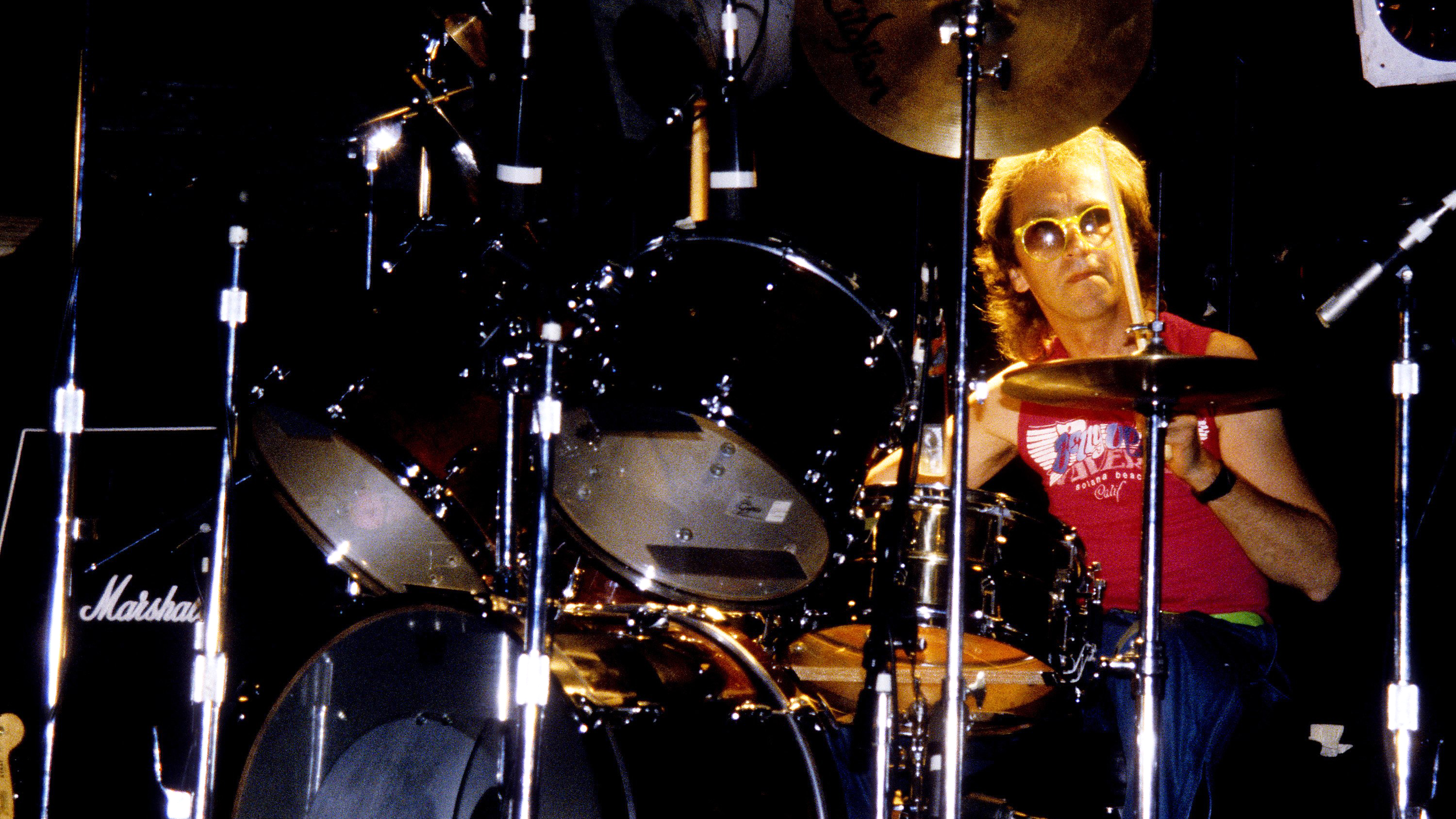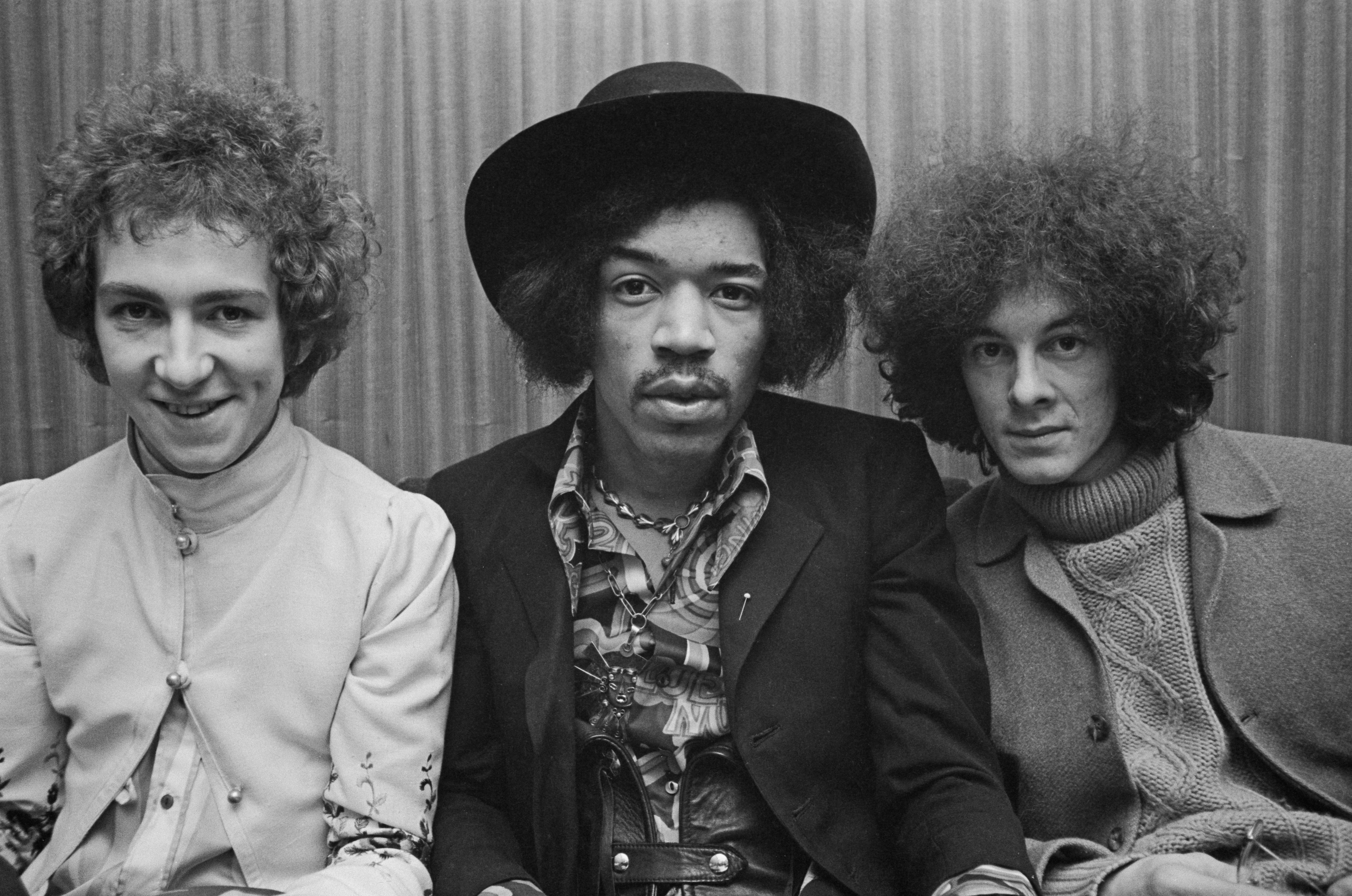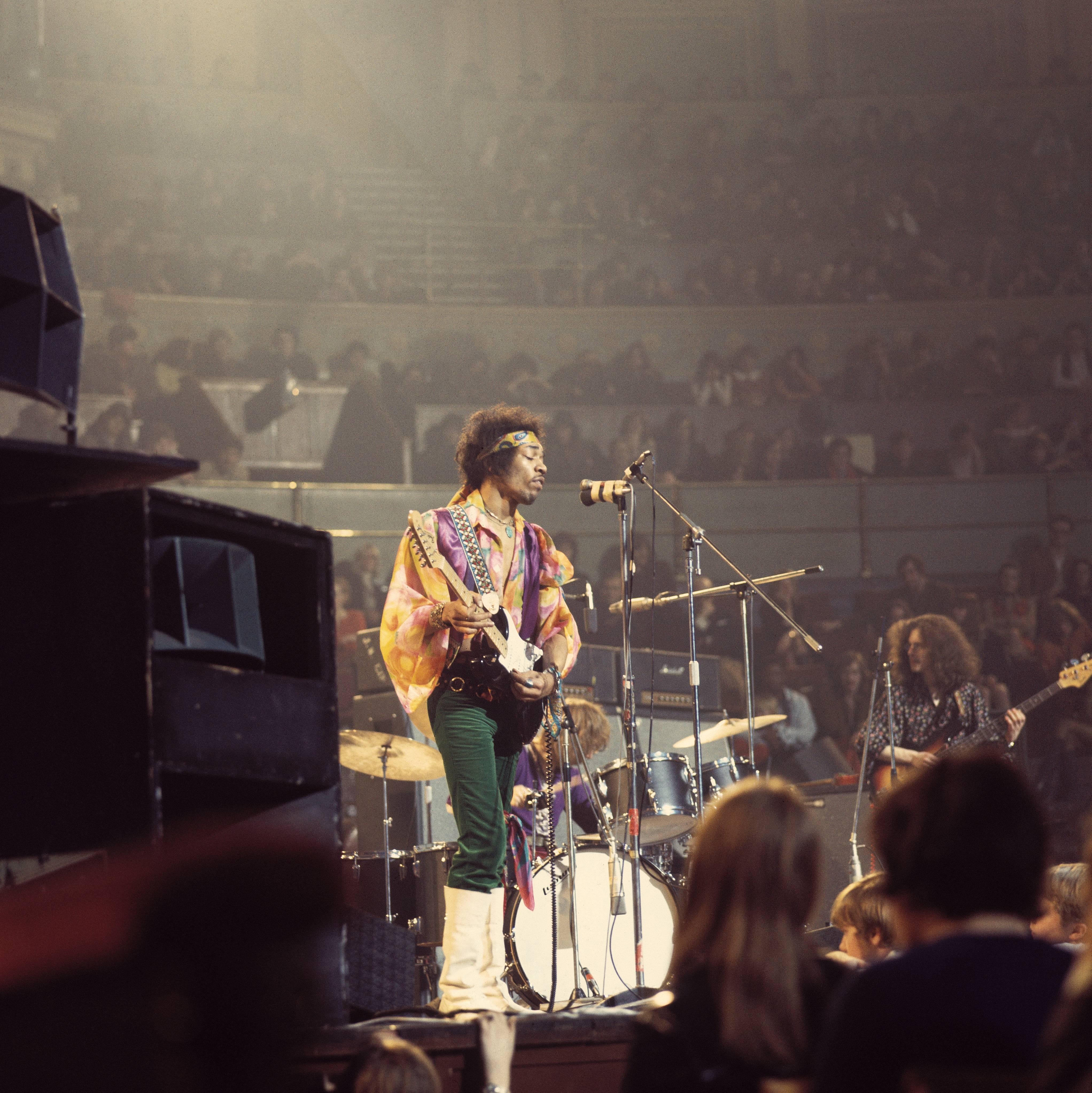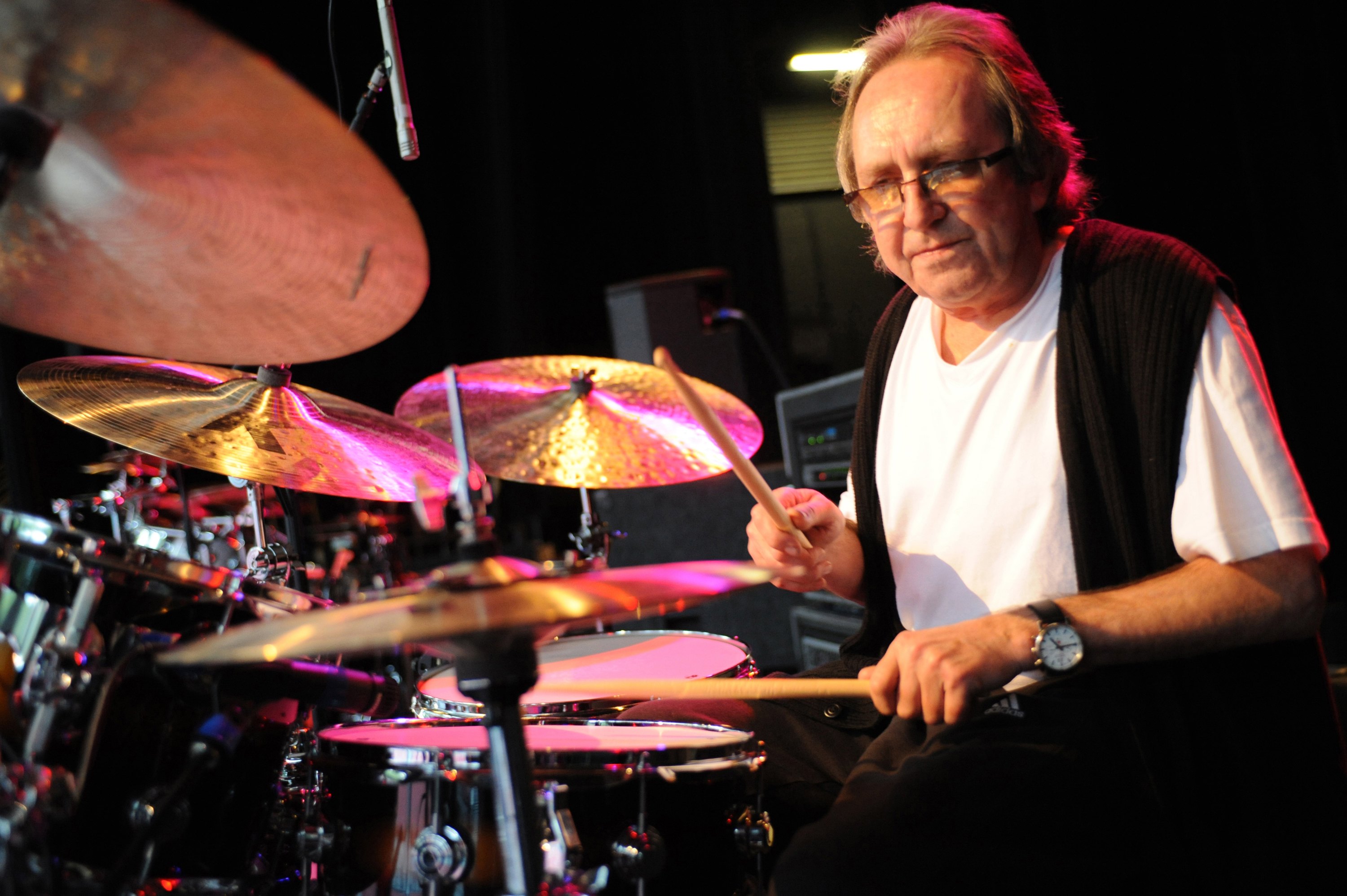“He would do a fill where you’d think, 'Oh no, there's no way he's going to land on 1' – Jimi would just laugh because they were so silly”: The magic of Mitch Mitchell, the drummer who landed a spot in Hendrix’s band on a coin toss
On what would've been his 79th birthday, we explore the legacy of one of history's most underrated drummers

Jimi Hendrix is rightly revered as one of the most brilliant, inventive guitarists to have walked the planet.
In a tragically short life, he smashed open people's understanding of what could be done with six strings, a fretboard, and an amplifier, becoming renowned for his electric live performances and producing three seismically influential albums with his band the Jimi Hendrix Experience.
Hendrix's virtuosity has meant his two bandmates in the Experience — bassist Noel Redding and drummer Mitch Mitchell — have often flown under the radar. But to underestimate the latter's skill and influence is to skate over a pivotal chapter in the evolution of modern guitar music.
By seamlessly intertwining jazz and rock influences to build the foundations of a dynamic rhythm section that didn't just keep time, but pushed other instrumentalists to the extreme and took deep pleasure in boundary-pushing experimentation, Mitchell did what few drummers have ever done. The accolades he's received as a result are a testament to his influence.
"That's the travesty right now, this towering monument of drums was 'Jimi Hendrix's drummer'... Jimi was Mitch's guitarist!"
Speaking in a memorable 2018 interview with Jeremy Clarkson, Stewart Copeland (former drummer of The Police) and Nick Mason (former drummer of Pink Floyd) agreed that Mitchell was the best of all time, with the former declaring: "that's the travesty right now, this towering monument of drums was 'Jimi Hendrix's drummer'... Jimi was Mitch's guitarist!"
According to Brandon Toews of the YouTube channel Drumeo, "he's recognised for completely rewriting the rules of rock drumming by fusing jazz elements with his hard-hitting rock style… his loose, swinging approach to time-keeping, which was heavily influenced by jazz… matched Jimi's guitar wizardry".
Born and raised in Ealing, West London, and christened John Mitchell, 'Mitch' first gained recognition in the entertainment business as a child actor (he starred in the '60s TV show Jennings At School'), before going on to develop a solid reputation as a rhythm and blues session drummer in his teenage years.
Want all the hottest music and gear news, reviews, deals, features and more, direct to your inbox? Sign up here.
He got his first serious break with the band Georgie Fame and the Blue Flames, who played a pivotal role in introducing him to the world of jazz. Writing in his 1990 book The Hendrix Experience (co-written with John Platt), he says: "Through playing with these musicians I got to hear Thelonious Monk, Coltrane and Oliver Nelson. Drummers like Max Roach, Elvin Jones, Philly Joe Jones and, of course, Tony Williams, changed my life."
"Drummers like Max Roach, Elvin Jones, Philly Joe Jones and, of course, Tony Williams, changed my life"
The Georgie Fame gig was short-lived, but soon after he left the band, Hendrix's manager Chas Chandler got in touch to inform him that a little-known American guitarist had just moved to London, and Chandler was auditioning potential bandmates. After getting the job following a coin toss with Aynsley Dunbar, Mitchell soon began cultivating a reputation for outlandish, meandering fills, and a loose, flowing technique that harked back to R&B heroes of his like Ronnie Stephenson. He found a creative freedom he'd never had before.
"[The Blue Flames] had been a very structured eight-piece unit, so to go to a three-piece, I could play whatever I wanted… I had complete freedom for the first time in my career as a player," Mitchell explained in a BBC Radio interview in 1990. He'd also previously clashed with the producers and bandleaders of other groups like The Tornados, and therefore relished Hendrix's hands-off approach.

"It was a real chance, having come from such a structured unit as The Blue Flames, with horns and very tight arrangements, to come to something as loose as Hendrix," Mitchell writes in his book. "To have that much freedom was like being released from prison." In a 1998 interview, the drummer cited a "mutual respect" that existed between the pair, explaining "musically I'd give him a hard time, he'd give me a hard time… there were no boundaries, there were no limits at all."
From the flying percussion sequence that sets the tone for Manic Depression, rolling with a finetuned kind of chaos between tight toms and snares, crashes and twinkling ride cymbals, to the constant, licentious use of snare-heavy fills on Fire, which matches the high intensity of Hendrix's lusty lyrics, Mitchell was frequently challenging his frontman.
Even in seemingly softer, more restrained tracks, like Hey Joe, Mitchell's knack for swinging, loose-wristed blues-flecked beats comes to the fore, and Hendrix's solos and riff changes offer ample opportunity for outrageous fills, which become increasingly frequent and ambitious as the track nears its climax.
According to the band's producer Eddie Kramer, "He had this innate ability to think ahead and to challenge Jimi and to do things that were ridiculous. He would do a fill where you would think 'Oh no, there's no way he's going to land on 1'. It would be outrageous. I remember very clearly that in the sessions he would do stuff, and Jimi would just laugh because they were so silly."

The relationship between the two artists often seemed to hinge on exactly this kind of playful, carefree experimentalism, coupled with a like-minded creative vision.
"I remember throwing a few things at Hendrix," Mitchell writes in The Hendrix Experience, recounting the pair's first meeting in 1966. "I really like Curtis Mayfield and The Impressions and I was astounded that he knew that style really, really fluently. He wasn't that flash as a guitarist on that occasion, it was more just going over the rhythmic structures."
According to Mitchell, at this point Hendrix's management were looking to form a three-piece situation similar to Eric Clapton's Cream, using "a complete backing unit" behind a frontman. Hendrix pushed for a more egalitarian approach, recognising Mitchell could offer more than many people initially anticipated.
The pair certainly had a stronger bond than Hendrix and Redding, who left the group on multiple occasions. Hendrix was forced to play bass for the recording of All Along The Watchtower and later, Billy Cox was recruited in Redding's place, subsequently bringing in a solid feel for a funk-tinged groove that gave Mitchell even more freedom to express himself.
Mitchell's bond with Hendrix was reinforced when the drummer accepted an award inducting the Experience to the Rock n Roll Hall of Fame in 1992 (alongside Redding). Speaking to the audience, the drummer said: "I miss my friend today as much as I always did. I wish he could be here. I know he'd be really honoured."

Accolades like these have helped to reaffirm Mitchell's legacy, but he's still often absent from conversations about the best rock drummers of all time, which tend to centre around the likes of Keith Moon and John Bonham.
There are theories about why that is that extend beyond the simply dazzling star power of Jimi Hendrix. Some put it down to the way the Experience's recordings were mixed, with one Reddit user claiming that "the drums are so far back in the mix that it's easy to ignore them. Even when you pay attention to the drums they're so treble-heavy that they don't sound that great anyhow."
The group's lack of longevity is probably crucial, too: while many English rock bands of the 1960s and '70s ended up playing together in various formations for decades, the Experience was short-lived. Mitchell may have continued touring and playing versions of the Experience's music until his premature death in 2008 aged 62, but that magic spark he lit with Hendrix burned fast and bright.
Underappreciation for the contributions of Mitchell and Redding is also the cause of an ongoing legal battle against Sony Music, with the record label taken to court by the musicians' estates seeking copyright and performers' rights for recordings by the Jimi Hendrix Experience.
Representing the estates, Lawrence Abramson of Keystone Law has argued that Sony's exploitation of the recordings in the UK infringes their shares of the copyrights and the performers' property rights. It's a messy situation, but this tussle over the band's legacy only reaffirms how much the Experience achieved during their four years together.
"It's just finding people you're compatible with musically, which is very difficult to find"
They helped define the sound of the '60s, intertwining rhythm and blues and jazz influences with a heavier, swaggering rockstar energy. They set the blueprint for psychedelic rock, and kick-started major innovations in the exploitation of electronic technology, from using feedback and distortion as a pivotal musical element, to pioneering the use of pedals like the Vox V846 Wah and the Dallas Arbiter Fuzz Face.
Mitchell's richly textured, highly experimental drumming was central to the sound created in part by these innovations. And today, perhaps his most visible legacy is the line of incredible musicians he influenced.
His fusion of jazz and rock sensibilities played a key role in the early development of musicians like Queen's Roger Taylor and Double Trouble's Chris Layton. In recent years, Nick Mason and Stewart Copeland have both gushed about his talents and called him their favourite drummer of all time. There's no doubt that without his highly unique style, which perfectly complemented Hendrix's playing, the Experience would've been a very different band.
"It's just finding people you're compatible with musically, which is very difficult to find," Mitchell said in a 1973 interview. "I found possibly three or four people, after playing for a few years, and I think he felt the same way."
Fred Garratt-Stanley is a freelance music, culture, and football writer based in London. He specialises in rap music, and has had work published in NME, Vice, GQ, Dazed, Huck, and more.
You must confirm your public display name before commenting
Please logout and then login again, you will then be prompted to enter your display name.
